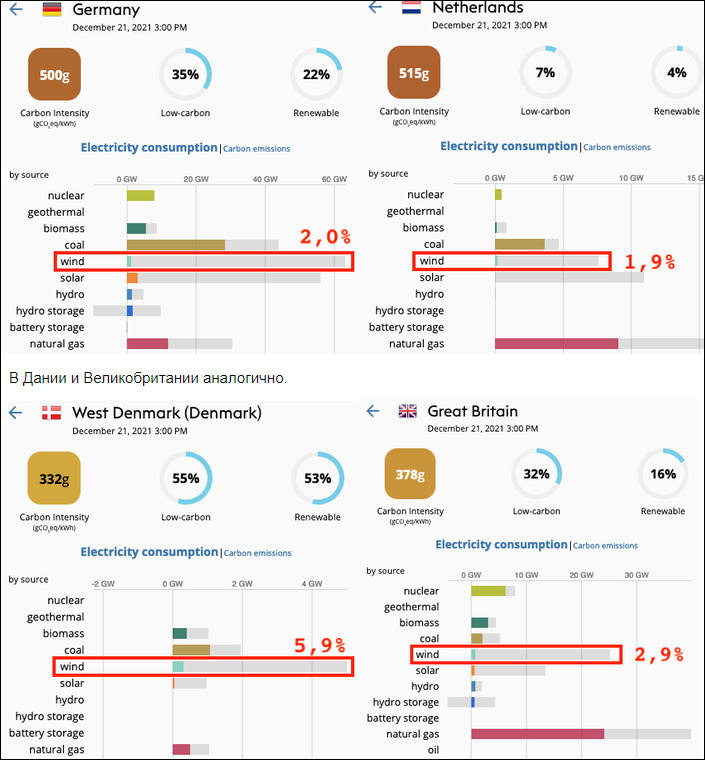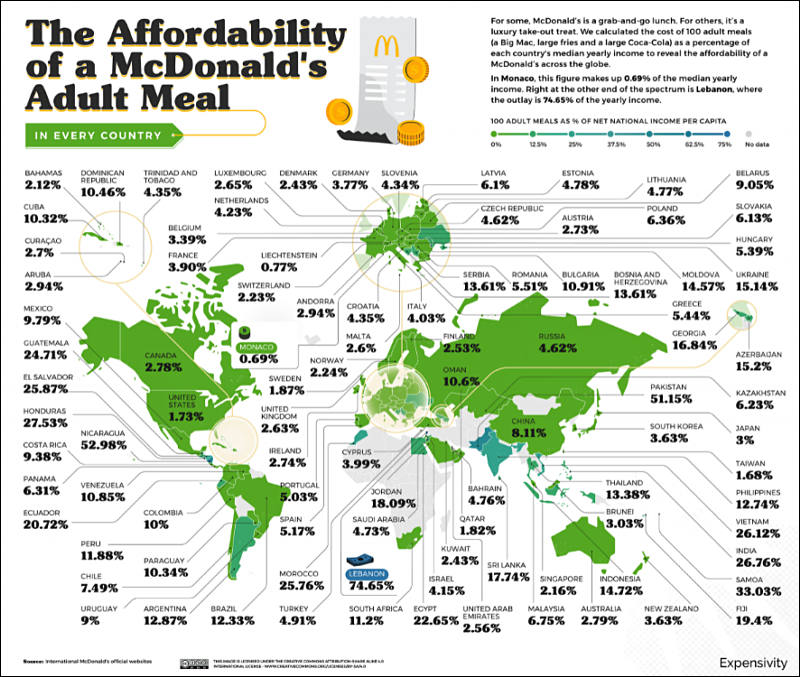
-
Follows0Replies0Views463UK: National crisis and Russian motherfuckers
-
The heads of companies EDF, Good Energy and Energy UK have asked the government in London to resolve the situation amid rising gas prices that are leading the country and its industry to a national disaster. Experts said that the crisis in Britain is associated with a shortage of Russian gas supplies to Europe.
“This is a national crisis. Wholesale gas and electricity prices have risen to unprecedented levels in the past three weeks, ”said Good Energy CEO Nigel Pocklington.
EDF spokesman Philippe Kommare assessed the situation in the energy sector as critical and predicted a further deterioration in the situation. Suppliers are trying to support consumers, but the industry's problems are too great.
Investec analyst Martin Young allowed electricity tariffs to skyrocket to 56 percent. At the moment, the average household in the UK spends on these needs 1277 pounds per year, but in April 2022 the amount of these expenses may grow to two thousand pounds
Main proposal here is force Russian motherfuckers to provide gas for price that will be dictated by UK. Free market, my ass.
-
-
Follows0Replies0Views584EU: Energy Poverty Rising
-
Energy poverty is “a pre-existing problem” to the current energy price hike, which is linked to the inability of people to pay their fossil fuel bills, said Adela Tesarova, an official at the Commission’s energy department.
“We want to avoid that decarbonisation makes this problem worse,” she told a EURACTIV event held earlier this month, saying this is why the EU executive proposed creating a social climate fund worth €72.2 billion for the 2025-2035 period.
The ongoing energy price crisis has put energy poverty in the spotlight, with EU governments scrambling to alleviate the burden on the most vulnerable households with short-term measures such as direct income support.
Around 31 million Europeans are living in energy poverty and are unable to keep their homes adequately warm, according to Eurostat figures.
For the long term, the Commission tabled “structural measures” to boost energy efficiency and renewables, which will reduce Europe’s dependence on fossil fuels, Tesarova said.
“Moving away from fossil fuels is a way to eradicate energy poverty,” the official said, citing EU programmes helping people to insulate their homes and other initiatives to boost renewables.
Pawel Cioch, vice-president of Polish state-owned electricity company PGE, said high energy prices are a major driver of energy poverty.
In the case of the Czech Republic and Slovakia, energy expenditure already exceeds 20% of the average household budget, Cioch pointed out. And in the case of Romania, Hungary, and Bulgaria, the share of energy expenditure is around 15%, he told participants at the EURACTIV event.
If green reforms at the EU level are not accompanied by financial support, he said, energy companies will have no choice but to increase prices in order to secure funding for new investment in clean energy.
“Of course we need to exit from fossil fuels,” she said. “But on the other side, there is society” and people who “already faced energy poverty before the energy price crisis,” she cautioned.
Bunch of people enemies and degenerates rule the EU.
-
-
Follows0Replies4Views2.4KEnergy: Why nuclear energy is very limited?
-
Global power consumption today is about 15 terawatts (TW). Currently, the global nuclear power supply capacity is only 375 gigawatts (GW). In order to examine the large-scale limits of nuclear power, to supply 15 TW with nuclear only, we would need about 15,000 nuclear reactors.
Land and and location: One nuclear reactor plant requires about 20.5 km2 (7.9 mi2) of land to accommodate the nuclear power station itself, its exclusion zone, its enrichment plant, ore processing, and supporting infrastructure. Secondly, nuclear reactors need to be located near a massive body of coolant water, but away from dense population zones and natural disaster zones. Simply finding 15,000 locations on Earth that fulfill these requirements is extremely challenging.
Lifetime: Every nuclear power station needs to be decommissioned after 40-60 years of operation due to neutron embrittlement - cracks that develop on the metal surfaces due to radiation. If nuclear stations need to be replaced every 50 years on average, then with 15,000 nuclear power stations, one station would need to be built and another decommissioned somewhere in the world every day. Currently, it takes 6-12 years to build a nuclear station, and up to 20 years to decommission one, making this rate of replacement unrealistic.
Accident rate: To date, there have been 11 nuclear accidents at the level of a full or partial core-melt. These accidents are not the minor accidents that can be avoided with improved safety technology; they are rare events that are not even possible to model in a system as complex as a nuclear station, and arise from unforeseen pathways and unpredictable circumstances (such as the Fukushima accident). Considering that these 11 accidents occurred during a cumulated total of 14,000 reactor-years of nuclear operations, scaling up to 15,000 reactors would mean we would have a major accident somewhere in the world every month.
Uranium abundance: At the current rate of uranium consumption with conventional reactors, the world supply of viable uranium, which is the most common nuclear fuel, will last for 80 years. Scaling consumption up to 15 TW, the viable uranium supply will last for less than 5 years. Viable uranium is the uranium that exists in a high enough ore concentration so that extracting the ore is economically justified.
Uranium extraction from seawater: Uranium is most often mined from the Earth’s crust, but it can also be extracted from seawater, which contains large quantities of uranium (3.3 ppb, or 4.6 trillion kg). Theoretically, that amount would last for 5,700 years using conventional reactors to supply 15 TW of power. (In fast breeder reactors, which extend the use of uranium by a factor of 60, the uranium could last for 300,000 years. However, these reactors’ complexity and cost makes them uncompetitive.) Moreover, as uranium is extracted, the uranium concentration of seawater decreases, so that greater and greater quantities of water are needed to be processed in order to extract the same amount of uranium. The volume of seawater that would need to be processed would become economically impractical in much less than 30 years.
Exotic metals: The nuclear containment vessel is made of a variety of exotic rare metals that control and contain the nuclear reaction: hafnium as a neutron absorber, beryllium as a neutron reflector, zirconium for cladding, and niobium to alloy steel and make it last 40-60 years against neutron embrittlement. Extracting these metals raises issues involving cost, sustainability, and environmental impact. In addition, these metals have many competing industrial uses; for example, hafnium is used in microchips and beryllium by the semiconductor industry. If a nuclear reactor is built every day, the global supply of these exotic metals needed to build nuclear containment vessels would quickly run down and create a mineral resource crisis. This is a new argument that Abbott puts on the table, which places resource limits on all future-generation nuclear reactors, whether they are fueled by thorium or uranium.
https://phys.org/news/2011-05-nuclear-power-world-energy.html?ref=vc.ru
4 comments 5 comments Vitaliy_KiselevDecember 2021Last reply - December 2021 by robertGL Subscribe to this blog
Subscribe to this blog
-
-
Follows0Replies1Views1.2KIdiots: Amazing efficiency of wind farms
-

Problem is - solar and wind are not reliable and not suitable for any real manufacturing or life during winter.
1 comment 2 comments Vitaliy_KiselevDecember 2021Last reply - December 2021 by stoney Subscribe to this blog
Subscribe to this blog
-
-
Follows0Replies1Views735War: Effects of US money injections
-
According to the ECB, consumption of durable goods in the US grew by about 45% compared to the level of 2018, but in the eurozone it grew by only 2%.
Factory prices in China are well above consumer prices, indicating a chasm between weak domestic demand and strong overseas demand, driven in part by strong US demand for China's manufactured goods.
1 comment 2 comments Vitaliy_KiselevDecember 2021Last reply - December 2021 by Vitaliy_Kiselev Subscribe to this blog
Subscribe to this blog
-
-
Follows0Replies0Views402Global Warming News: Northern Sea Route
-
In the water area of the Northern Sea Route (NSR), 24 ships were blocked in the ice. All of them are idle in a forced drift, awaiting the approach of nuclear icebreakers, which are supposed to take them out of the ice captivity.
In accordance with the latest forecast posted on the website of the administration of the Northern Sea Route with reference to data from Roshydromet, the type of ice conditions along the entire length of the NSR is declared as “light”. Vedomosti sent a request to Roshydromet. Vedomosti also sent inquiries to shipping companies, the Ministry of Transport and the administration of the Northern Sea Route.
In reality, the ice situation today does not correspond to forecasts, said a source close to Rosatom (the operator of the NSR), Vedomosti. According to him, the ships "get into the ice" and cannot go on their own. The interlocutor of Vedomosti explains that in past years at this time the ice situation was simple, so this November a number of shipowners did not order icebreaker assistance. “But the weather changed dramatically, Roshydromet's forecast turned out to be inaccurate,” he says.
The selfless work of the captains of nuclear icebreakers, the well-coordinated actions of the captains of cargo ships will allow to remove all problems by the end of December 2021.
But now the situation with the northern delivery has become more complicated, that is, the delivery of food and other essential goods to the regions of the Far North and the Far Eastern Federal District.
-
-
Follows0Replies1Views601Affordability of McDonald's meal1 comment 2 comments Vitaliy_KiselevDecember 2021Last reply - December 2021 by Vitaliy_Kiselev
 Subscribe to this blog
Subscribe to this blog
-
-
Follows0Replies1Views2.0KGood quote: Stalin on jungle law of capitalism
-
And those who fall behind get beaten.... All beat Russia because of her backwardness. They beat her because to do so was profitable and could be done with impunity. Such is the law of the exploiters-to beat the backward and the weak. It is the jungle law of capitalism. You are backward, you are weak-therefore you are wrong; hence, you can be beaten and enslaved. You are mighty-therefore you are right; hence, we must be wary of you.
That is why we must no longer lag behind. We are fifty or a hundred years behind the advanced countries. We must make good this distance in ten years. Either we do it, or we shall be crushed.
I. V. Stalin
1 comment 2 comments Vitaliy_KiselevDecember 2021Last reply - December 2021 by stoney Subscribe to this blog
Subscribe to this blog
-
Howdy, Stranger!
It looks like you're new here. If you want to get involved, click one of these buttons!
Categories
- Topics List23,911
- Blog5,718
- General and News1,330
- Hacks and Patches1,148
- ↳ Top Settings33
- ↳ Beginners254
- ↳ Archives402
- ↳ Hacks News and Development56
- Cameras2,342
- ↳ Panasonic984
- ↳ Canon118
- ↳ Sony154
- ↳ Nikon95
- ↳ Pentax and Samsung70
- ↳ Olympus and Fujifilm98
- ↳ Compacts and Camcorders295
- ↳ Smartphones for video96
- ↳ Pro Video Cameras191
- ↳ BlackMagic and other raw cameras116
- Skill1,959
- ↳ Business and distribution66
- ↳ Preparation, scripts and legal38
- ↳ Art149
- ↳ Import, Convert, Exporting291
- ↳ Editors190
- ↳ Effects and stunts115
- ↳ Color grading197
- ↳ Sound and Music280
- ↳ Lighting96
- ↳ Software and storage tips266
- Gear5,407
- ↳ Filters, Adapters, Matte boxes344
- ↳ Lenses1,577
- ↳ Follow focus and gears93
- ↳ Sound496
- ↳ Lighting gear313
- ↳ Camera movement230
- ↳ Gimbals and copters302
- ↳ Rigs and related stuff271
- ↳ Power solutions83
- ↳ Monitors and viewfinders339
- ↳ Tripods and fluid heads139
- ↳ Storage286
- ↳ Computers and studio gear559
- ↳ VR and 3D248
- Showcase1,859
- Marketplace2,834
- Offtopic1,314





